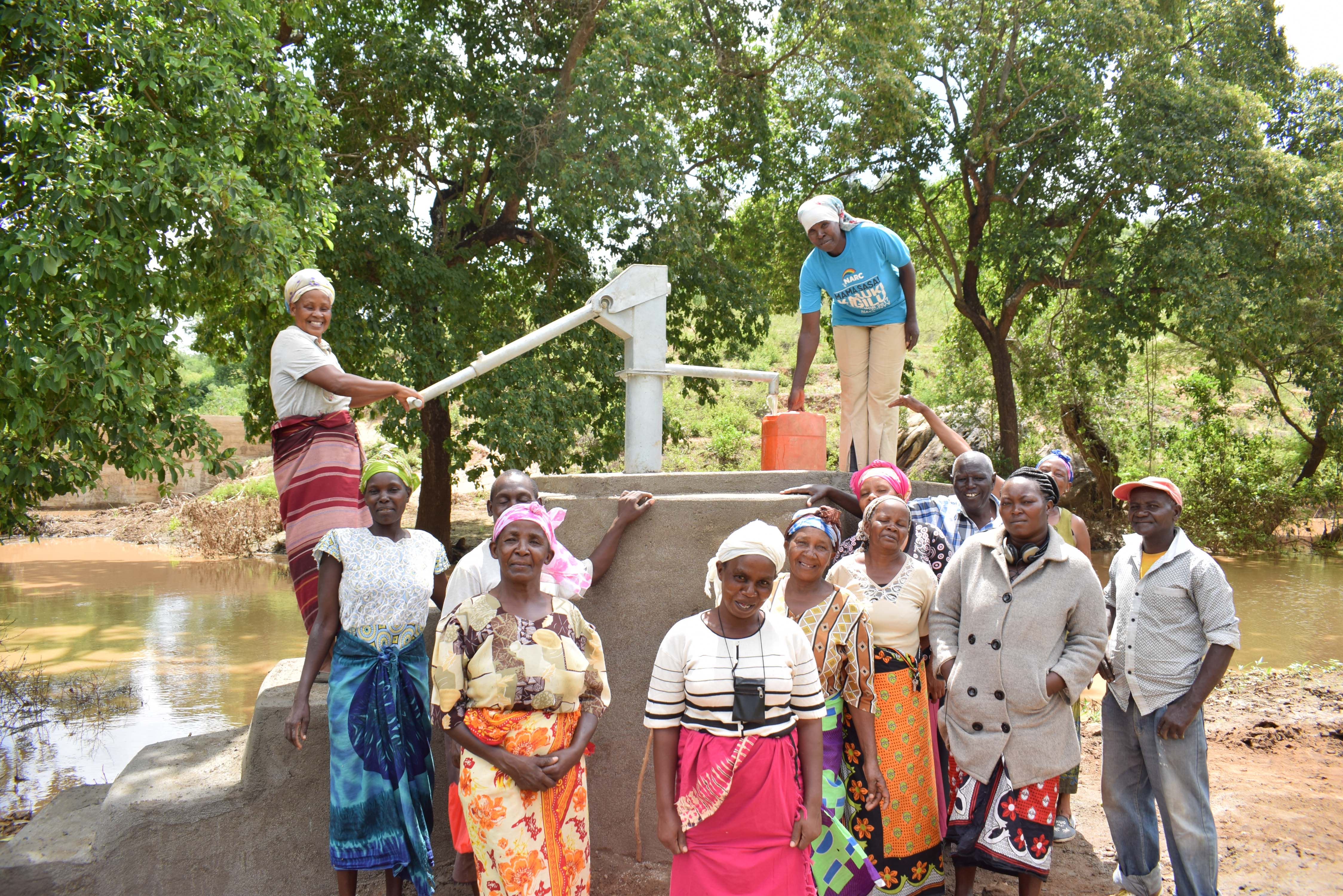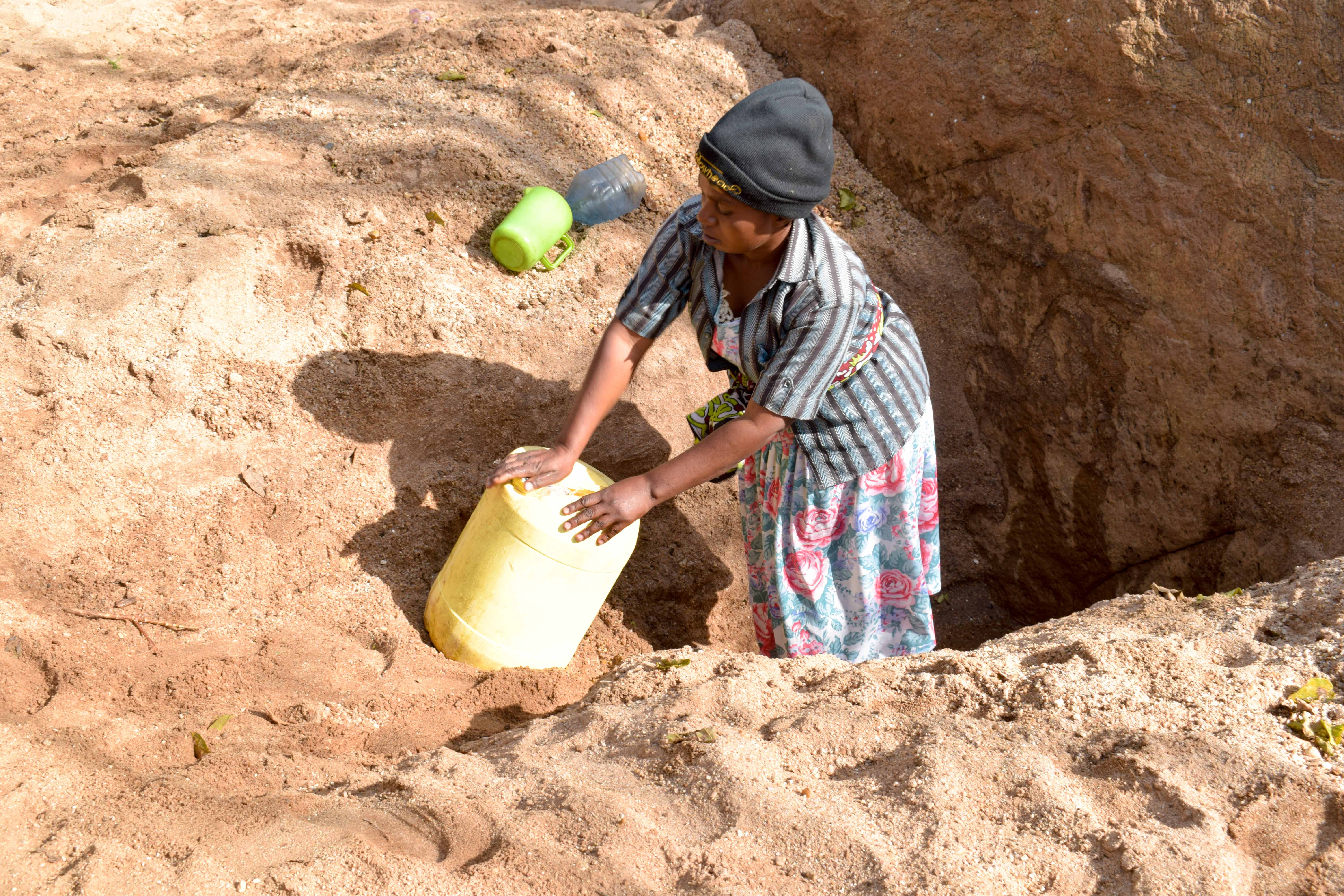Munyuni Village is in Mwingi, which is more than 300 kilometers away from our office. Based on the distance involved, we had to spend the night at Mwingi Town and wake up early in the morning to visit Munyuni. It is found in a peaceful, rural setting with steep slopes and narrow footpaths. The area is very dry with sparse vegetation. Most of the locals have built houses made of bricks and iron sheets.
The people of Munyuni depend on open, dirty water sources to meet their drinking, cooking, and cleaning needs. They have to walk long distances to the Ikuyuni River, so most families have invested in donkeys. The river appears dry at first glance, but people dig holes in the sandy riverbed until water fills the bottom. These holes are left open overnight and sate the thirst of wild animals, too.
The community population of 689 is too high for such little water, so the riverbed is often overcrowded. The seasonal nature of the scoop holes means water sometimes gets used up by the end of the day, forcing locals to wake up early in the morning so as to get enough water.
"We have suffered for many years as residents of Munyuni Village because of perennial water shortages. The available water is from river scoop holes and is sometimes colored which has led to many cases of stomach problems being reported by locals after using the water. As a community, we have been brought together by water challenges and are now ready to bring our unity of strength by working together in implementing water projects in our village," said Nziu Munyu Self-Help Group member Angelina Nzuna.
Community members practice a variety of activities to sustain their families. Men are the main family workforce in bringing food to the table. 81% of people in this community depend on casual labor, 14% on farming, and 5% on business activities to earn money.
The community also needs support for personal hygiene and household cleanliness. Though the severe water shortage forces people to sacrifice when it comes to cleaning, there is also a need for new knowledge and other tools for people to stay healthy. Not every family has a pit latrine, and only a few have handwashing stations.
"Our levels of hygiene and sanitation in Munyuni Village are below average because we lack enough water supply. This makes our efforts to keep high levels of cleanliness difficult," continued Mrs. Nzuna.
"By working together on community water projects, we hope to collectively work on the projects and bring water close to everyone in our locality, which will contribute towards improved levels of hygiene and sanitation."
What we can do:
Our main entry point into Munyuni Community has been the Nziu Munyu Self-Help Group, which is comprised of local farming households that are working together to address water and food scarcity in their region. These members will be our hands and feet in both constructing water projects and spreading the message of good hygiene and sanitation to everyone.
Training
Our trainers visited households when they were in Munyuni to interview family members and observe their environment. These visits help our trainers build a pertinent training schedule for this community.
A variety of activities are planned that will get participants involved in learning about the importance of latrines, handwashing stations, dish racks, and water treatment.
Hand-Dug Well
This particular hand-dug well is being built adjacent to this group’s ongoing sand dam project (click here to see), which will supply clean drinking water once it rains. We have supplied the group with the tools needed for excavation. With the guidance of our artisans and mechanics, the excavated well will be cased, sealed with a well pad, and then finished with a new AfriDev pump.
Excavation takes a month or more on average, depending on the nature of the rock beneath. Construction of the well lining and installation of the pump takes 12 days maximum. The well will be lined with a concrete wall including perforations so that once it rains, water will filter in from the sand dam.
This well will be located in Munyuni Village and will bring clean water closer to families having to walk long distances for their water.

 Protected Dug Well
Protected Dug Well
 Rehabilitation Project
Rehabilitation Project




































